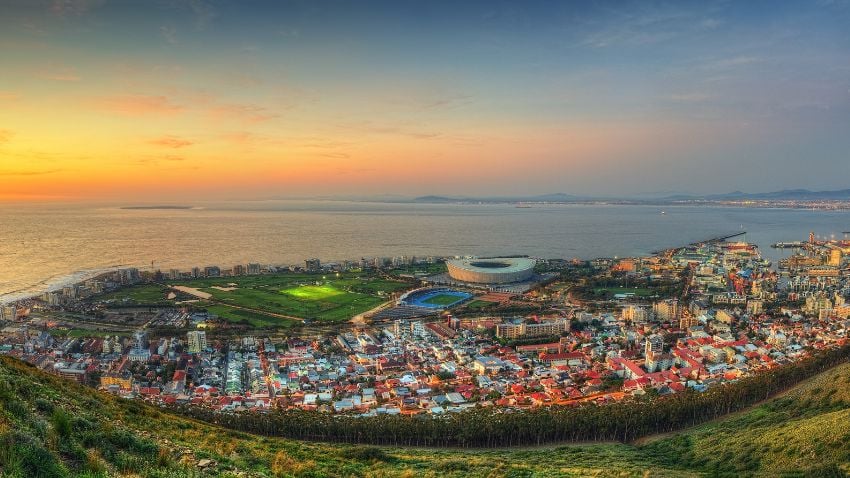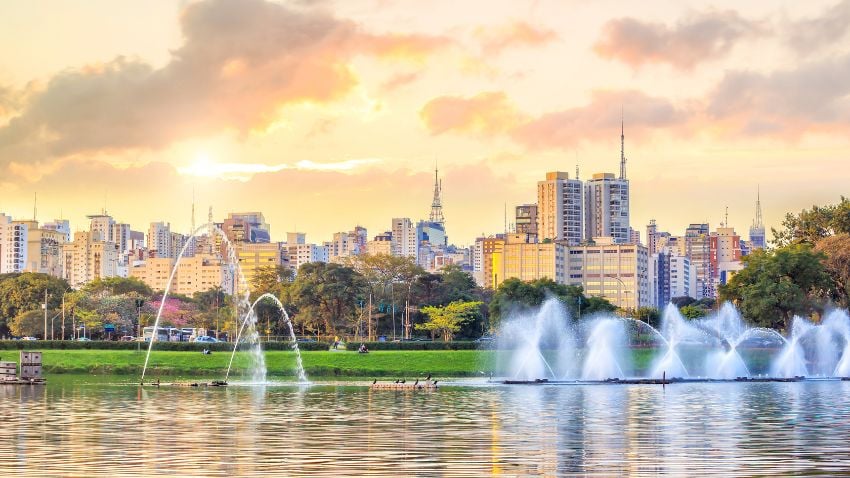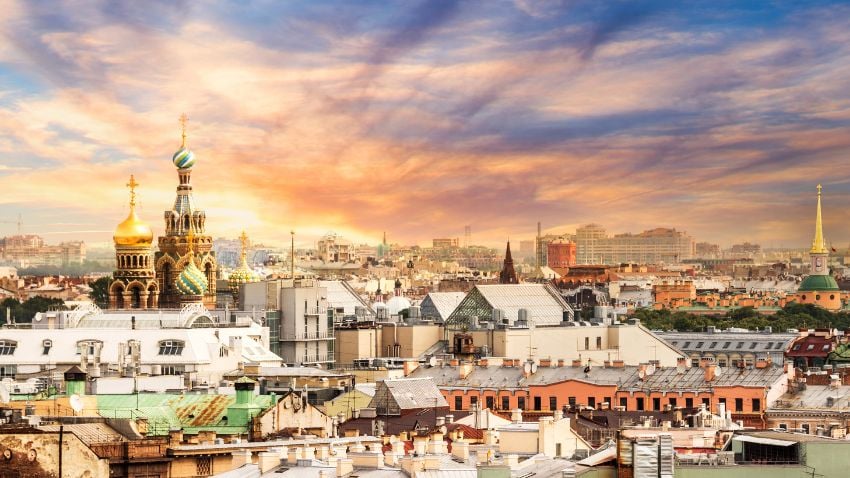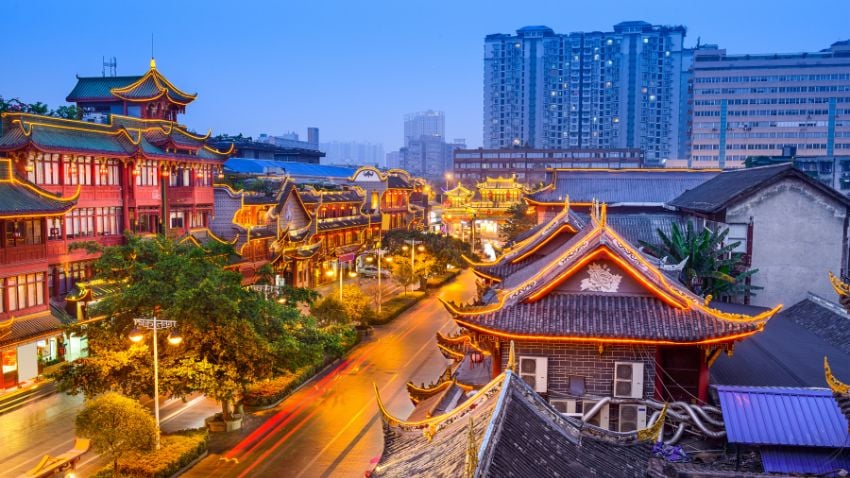Top Things To Do In Panama In 2026
Panama’s geographic size is modest, but its global relevance is not. The country connects two oceans and two continents, operates on a dollarized...

4 min read
Ever since Jim O’Neill, the famous economist of Goldman Sachs, identified the BRIC grouping as the fastest-growing economic powerhouse for the next generation, it has stayed a hot topic of debate for the economic world. In 2001, the acronym “BRIC” was coined because it comprises Brazil, Russia, India and China.
Karin Costa Vazquez, Executive Director for global management at OP Jindal Global University, said these big markets have performed remarkably better than O’Neill predicted almost two decades ago. With a Global GDP rate of eight percent in 2001 to a GDP rate of 22.4% in 2017, the BRIC Nations have been on their way to shape global governance successfully.
South Africa became a part of BRIC in 2010, changing the acronym to “BRICS.” According to IMF predictions, these five countries would account for nearly half of the world’s growth by 2021.
I will further discuss how the BRIC nations can potentially eclipse the world’s most dominant Western Nations G7 (UK, USA, Canada, Germany, France, Italy and Japan), over the next few decades.
Related content: The Basics Of How To Get A Second Passport Or A Second Residency.

Sao Paulo, Ibirapuera Park
I will list here a few reasons that will cause BRICS to gain more economic growth than the G7 and elaborate on each reason.
BRICS has become an important source of global economic growth and political influence. Its common goal is to propel international economic governments away from neo-liberalism and the dominance of Western nations or G7.
In 1990, their share of global GDP was around 11%, which increased to almost 30 percent in 2014. These figures faced a boom in 2010 and experienced a significant dip in 2008, surrounding the great recession.
These five economies cover almost 25% of the world’s land, account for 43% of the world’s population and generate a global Gross Domestic Product (GDP) of nearly $18.5 trillion USD. BRICS’s contribution to the worldwide economy was 23.6% in 2017, which is expected to reach a whopping 26.8 percent by the end of 2022.
According to the Goldman Sachs report published in 2003, BRICS could grow larger than the G7 in terms of per capita income. However, recent statistics show that the growth to date has been chiefly because of China and India rather than because of all five nations equally, as explained by Marc Chandler.
Over the past 30 years, China maintained a growth rate of nearly 10%, with a declining poverty rate, from 26% in 2007 to 2% in 2018. India wins the race with an inconsistent but impressive growth rate of 8.2% in the first quarter of 2019.
Related content: What Is Russia’s New Investment Visa Program Like?

St Petersburg, Russia
BRICS has also expanded rapidly in terms of the financial markets over the past few decades. Between 1990 and 2010, market capitalization grew from 4% to 74% of the GDP in Brazil, from 12% to 93% in India, and from scratch to 70% and 81% in Russia and China, respectively.
However, South Africa stays upfront with over 100% growth in market capitalization, from 123% to 278%. As the S&P Global Market Intelligence reported, the top 100 banks in the global rankings list have been figured from Brazil, Russia, India, China, and South Africa.
However, the four state-backed banks in China took the top 4 spots in the global banks ranking, with an accumulated $13.637 trillion USD in assets.
BRICS stays on top of its game with their massive natural resources. Brazil owns vast resources of oil and agricultural products. Russia’s resources include significant deposits of oil, natural gas and coal.
India proliferates from its reserves of high-quality iron ore, bauxite and copper ore and stands among the major iron producers in the world.
South Africa has massive reserves of different types of diamonds, gold, iron ore, platinum, uranium, titanium and other valuable metal alloys, along with manganese, copper and chromium.
China has iron ore, coal, petroleum, methane and great potential for being a hydro-power state.
These valuable natural resources lay the ground for their economic development through increased foreign exports and international affairs, and I predict we will see a new world reserve currency based on commodities, with BRICS countries being at the forefront of the movement.
Critics have also argued that the BRICS governments have potentially misused and exploited these natural resources to attain diplomatic objectives in the domestic and international economies. The risks and challenges underlying these resources' management and strategic handling suggest that the statement needs to be revised. The profitability of these resources does have a positive impact on the development of international cooperation.
Related Content: What You Need To Know To Get A Brazil Visa
(2).jpg?width=850&height=478&name=Copy%20of%20Articles%20(850%20%C3%97%20478%20px)(2).jpg)
Amber Fort and Palace in Rajasthan, India
The foreign trade figures of the BRICS Nations have shown remarkable growth patterns. The growth rate for exports was 13.3% during the 1990s, which increased to 49.8% in a decade. Similarly, the imports grew by 13.2% to 47.7% during the same period.
According to the statement of Microsoft’s founder, Bill Gates, China reportedly consumed 6.6 gigatons of concrete between 2011 and 2013, which is more than the United States' concrete consumption during the entire 20th century.
Currently, China is the largest exporter in the world and is expected to become the biggest supplier of manufactured goods globally, while Brazil and Russia are expected to become the largest suppliers of raw materials.

Chengdu, China Historic District
According to many observers, the BRICS nations are merely five countries seeking to develop their economies united with a single initiative of de-monopolizing the economic resources, pushing away western dominance and neo-liberalization.
These countries deal with their own issues; China and Russia fear the backing out of foreign investors because of human rights issues. India’s problems with Pakistan can limit its financial resources and raise political concerns impeding foreign investments. In contrast, South Africa deals with a growing economy alongside poverty and a lower GDP. According to our observations, investing in the lucrative Chinese market at the height of pessimism seems like a golden opportunity for profits.
If you want the best intel from the expat world, including profitable offshore opportunities, little-known tax-saving strategies, and hard-won insights on immigration, passports, and Plan-B residencies, all delivered to your inbox every single week, then join our daily correspondence, EMS Pulse®. Currently enjoyed by over 84,000 expats and expat-hopefuls worldwide. Fill in the form below to join our newsletter free:

Written by Mikkel Thorup
Mikkel Thorup is the world’s most sought-after expat consultant. He focuses on helping high-net-worth private clients to legally mitigate tax liabilities, obtain a second residency and citizenship, and assemble a portfolio of foreign investments including international real estate, timber plantations, agricultural land and other hard-money tangible assets. Mikkel is the Founder and CEO at Expat Money®, a private consulting firm started in 2017. He hosts the popular weekly podcast, the Expat Money Show, and wrote the definitive #1-Best Selling book Expat Secrets - How To Pay Zero Taxes, Live Overseas And Make Giant Piles Of Money, and his second book: Expats Guide On Moving To Mexico.

Panama’s geographic size is modest, but its global relevance is not. The country connects two oceans and two continents, operates on a dollarized...

Honduras’ newly elected president, Nasry Asfura of the conservative National Party, was sworn in on January 27, 2026. The election, held on November...

For a growing number of Americans, cost-of-living math no longer works. Housing feels harder to reach, everyday costs keep climbing, and long-term...